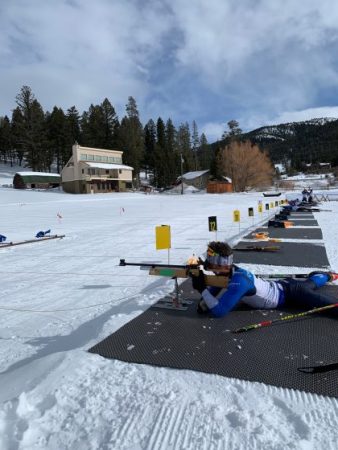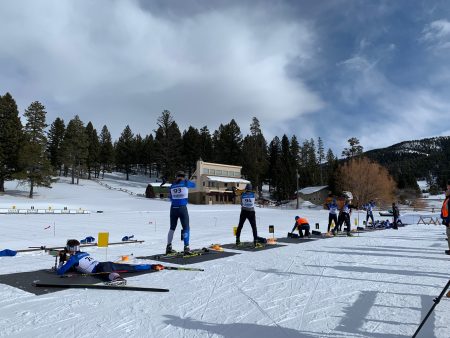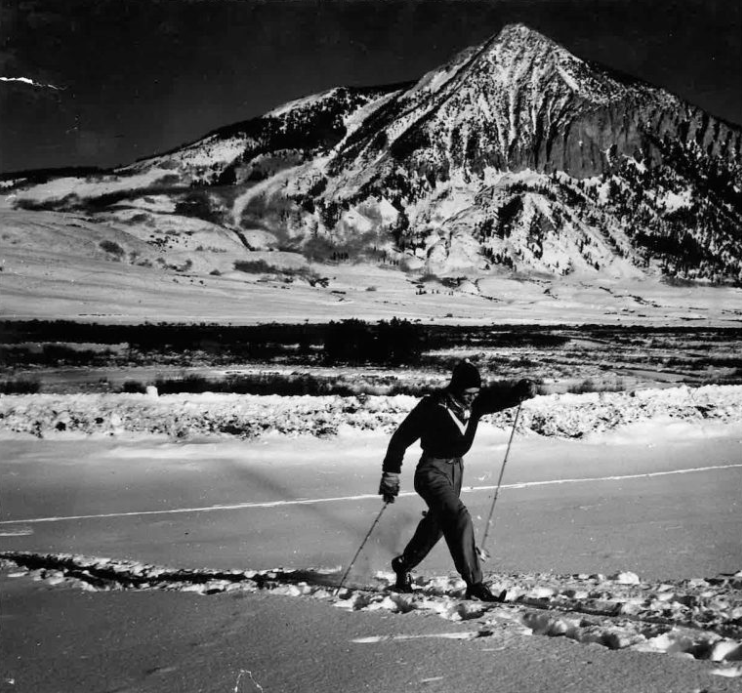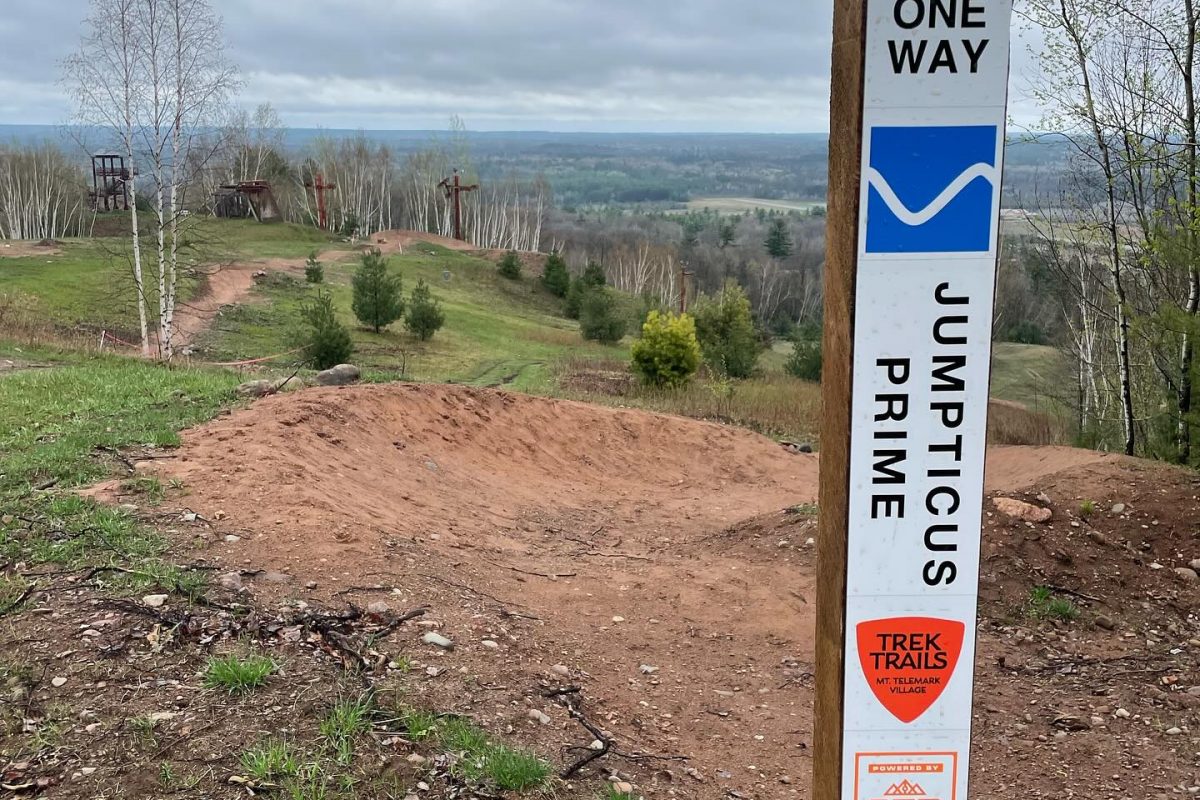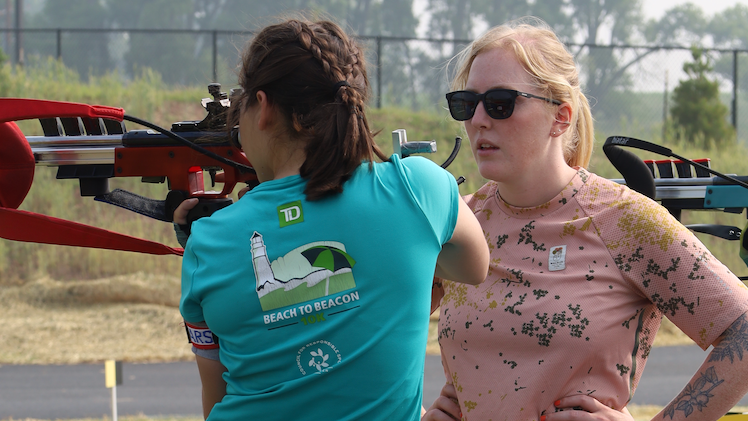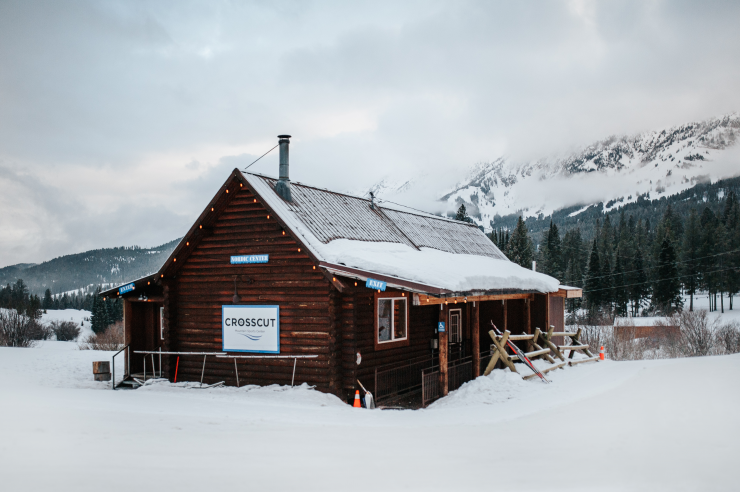
On April 9th, the Crosscut Mountain Sports Center in Bozeman, MT released information and qualification criteria for their newly founded elite team. As you skim what it takes to earn a spot at each tier of the program, it may catch your attention that the cross country, biathlon, and para nordic are housed within the same program. This single team approach reflects the growth and development at Crosscut in connection with its partnership with the US Para Nordic (USPN) program, which has proven beneficial to both parties.
The program at Crosscut is still in its nascent stages, however, in the unofficial first season last year, Crosscut Elite Team members racked up a slew of accomplishments including earning spots at the Youth Olympic Games, IBU World Junior Championships, IBU Cups, IBU Open European Championships, FIS North American World Cup Sprint Tour (these spots were eventually missed due to cancellations), and World Para Nordic Skiing World Cups.
Simply put: the goal of the Crosscut Elite Team is supporting athletes of all abilities as they advance toward the highest levels of ski racing and biathlon, beit a Paralympic team, the US Biathlon Team, or the US Ski Team.
To learn more about the evolution and goals of the elite program at Crosscut, FasterSkier spoke with Nick Michaud, who keeps his hands full as the USPN Development Coach while also coaching the elite program across abilities.
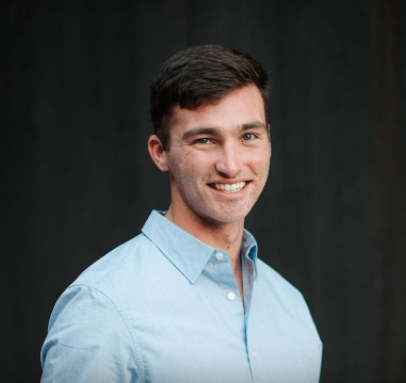
Before becoming a coach, Michaud was a member of the Bridger Ski Foundation (BSF) Elite Team through the 2018 Olympic Season where he came up one spot short of making the team for PyeongChang. A native of Fort Kent, ME, he grew up skiing and competing in biathlon with the Maine Winter Sports Center, coached by John Farra and Eileen Carey, who went on to become leaders of the US Para Nordic Team. Farra has since transitioned to the role of head performance general manager of USA Paratriathlon, with Carey advancing into his spot as head coach.
Michaud explained that as his own ski career was waning, he sought advice from Carey about possible next steps, expressing an interest in coaching.
“The motivation has been that the people in my life who impacted me the most were coaches, and I’ve always known that I wanted to teach or coach — to work with people in some capacity.”
In March of 2019, Carey presented Michaud with the opportunity to travel with the USPN team on a World Cup trip in Sapporo, Japan as an assistant coach. Michaud leapt at the opportunity, describing it as “so much fun”, and was offered a position with USPN later that year. Although he lacked specific experience working with adaptive athletes, he explained that the mission of USPN excited him more so than other possible coaching roles.
“I’m even more drawn to the movement of the Paralympic foundation right now to increase access for this sport,” said Michaud. “Nordic skiing is a pretty homogenous group of people, so it’s exciting to be part of an organization that is finding ways to break out of that a little bit.”
According to Carey, Michaud’s personality and growth mindset ready him for the challenge of coaching the adaptive team.
“Nick has a natural curiosity that makes him a great fit for the role,” wrote Carey in an email to FasterSkier. “For para athletes, it is not possible to approach coaching with a ‘one size fits all’ solution. I believe this is also true of all coaching, but it is elemental to coaching athletes who have such different mechanics from one another. When there is no “norm”, you always have to be willing to search and invent.
“I have known Nick since he was 13 and he has always had that curiosity, the willingness to question and try (and fail!) at things in order to progress. More than anything, that seems to make a great coach, so it was natural for me to try to get him some experience in the para coaching world when I found out he was hanging up the race skis.”
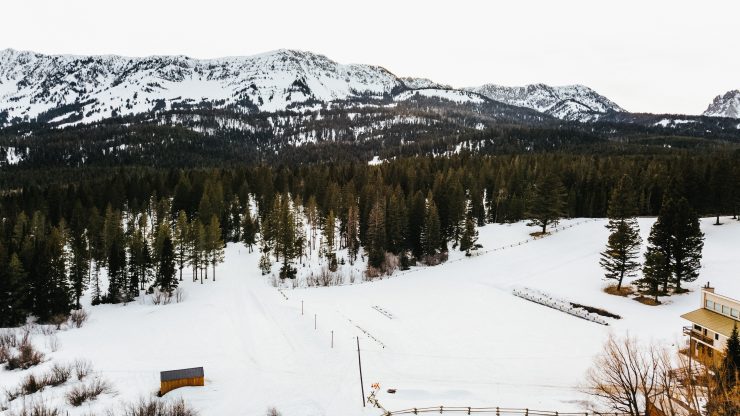
Over the last few seasons, Bozeman has become a home base for the USPN team, who are spread throughout the country for much of the year. The location has proved ideal given its proximity to an airport, and quality skiing that was conducive to sit skiing. This sparked a connection with Crosscut, who Carey explained has repeatedly “gone the extra mile” to support the growth and success of the para nordic program.
In a 2016 interview with the Spokesman-Review in Spokane, WA, Carey wrote, “The single-biggest component to [the rise of the US Para Nordic team] has been our relationship to Crosscut Mountain Sports Center. All of our competitions consist of half cross-country races and half biathlon. Before we moved to Bozeman, we didn’t have a place to shoot consistently. When we arrived in Bozeman and identified that as a need, Crosscut Mountain Sports Center and Bridger Biathlon Club provided the piece we were missing. They built us a range and have supported us in so many ways to make sure our athletes have what they need for success. It has been an incredible experience for our athletes and team and one that will continue to be a huge component to our future success.”
The impact of Crosscut’s support of the USPN program has extended beyond the immediate circle of national team athletes and coaches, promoting access to adaptive athletes of all levels.
“It’s been really cool to see the partnership leech out to other parts of the community,” said Michaud. “For example, Eagle Mount is an adaptive ski program in Bozeman and Crosscut is partnered with them. When we build sit ski trails or sit ski teaching manuals for the Paralympic team, it’s not just for coaches trying to prepare skiers to be the best sit skiers in the world, but it also gets shared with a program like Eagle Mount, or equipment gets passed on to them. So Crosscut is increasing access to skiing, not just for the best sit skiers in the world, but for all adaptive skiers in Bozeman.”
Michaud explained that the USPN team also passes on used equipment to Eagle Mount and other programs. As sit ski and adaptive equipment is highly specialized and expensive, this creates access that clubs may not otherwise be able to afford.
“We’re always getting new sit skis and trying out new models, and all of a sudden, we have a fleet of sit skis that are getting retired and pushed out to other parts of the community, not just in Bozeman but throughout the country.”
He continued that as the USPN program rises and technology advances, they are passing on better and better equipment. They have also worked to develop a sit ski teaching manual, which has been passed on to adaptive programs as a resource to coaches.
Carey explained that the symbiotic relationship between Crosscut and USPN trickles down to supporting the development of new para athletes, as it creates access and opportunity for people of all abilities to try and grow in the sport.
“One of our program’s main objectives is to provide high quality Nordic experiences to para athletes. To do that we need to find ways to increase access to the sport at all levels. Crosscut is committed to providing an outdoor venue that is for all members of the community. We share a vision that sport and the outdoors are for everyone. When that is the starting place, it is easy to find ways to collaborate to build a place that is for everyone.”
To visualize this message, one simply needs to go for a ski at Crosscut.
“This winter the parking lot has been full everyday,” explained Michaud. “And there’s something beautiful about seeing an elite athlete doing intervals, flying around, with kiddos from the education program playing games in the stadium, and sit skiers shooting on the range and getting laps and maneuvering. Just seeing the full spectrum of anyone who could be skiing all in one place at once.”
In turn, by sharing trails with adaptive athletes, Crosscut users get to know them individually and learn more about what it takes to be an elite para athlete, thereby becoming more invested in their success. Michaud explained that this deeper understanding and excitement connects the community at Crosscut, and gives able bodied skiers the vocabulary to encourage para athletes in their training.
“It’s been really nice for the national team to be able to come to Bozeman and have a home, have a place to train, have people that they know who are excited about what they’re doing. To understand skiing enough to be complimenting them on their maneuvering or their double pole, versus just saying, ‘That’s so cool that you’re doing that.’ There’s just another level of understanding.”
Further highlighting the mutual benefit the Crosscut community has received from their support and fostering of the USPN program, Michaud discussed the contributions of elite team member Ruslan Reiter across programs. Reiter, who was born with an underdeveloped right arm, is the only member of the national team that competes in standing events, versus sit ski. Outside of skiing, he is pursuing a degree in aviation at Montana State University in Bozeman.
“He has really embodied this collaboration,” Michaud shared. “I’m also helping run the elite team for Crosscut. Since he’s a standing athlete, he fits into that fairly well on the day to day, then he travels with the Paralympic team in the winter. He’s super fortunate that he gets to be a part of this team of professional athletes in Bozeman and also part of the national team that’s traveling mostly in Europe… Our success is very intertwined with one another. Ruslan has gotten to be a part of that and it’s really benefited both groups in a lot of ways.”
Reiter was born in Russia but was adopted by a family in Maine, where he began his ski career in middle school. Just after finishing high school, Reiter made the 2018 Paralympic Team, landing just outside the top-10 in his best performance, 11th place in the 12.5-kilometer biathlon event. Michaud explained that Reiter’s presence elevates the motivation and dedication of his teammates.
“We’re in the weight room at the Mountain Project with the Crosscut Elite Team, and we’ve got a strength plan that I’ve been able to put together with a strength coach at the USOPC. These athletes who are in their mid-20’s who have been training for a long time and are really high level are seeing Ruslan doing pull ups with one hand, and there’s just no excuse to step it up, to not find a way to get better, because they’re a part of that culture. So that has been really tangible and awesome.”
Like the elite program and partnership with USPN, the Crosscut Mountain Sport Center is in a stage of growth and development. In the summer of 2017, the organization purchased the Bohart Ranch Property, which was home to a cross country trail system since the 1980’s, with the vision of creating a robust resource for the Bozeman community that doubled as training grounds for the Bridger Biathlon Club and USPN program.
As Crosscut began developing a vision ranch property, the input of those they wished to serve guided the approach. Carey explained that Crosscut’s inclusive and dedicated approach has been paramount to creating a ski center that supports athletes of all abilities.
“They are starting the process of developing programming, events, and a venue with the lens of ‘How are we going to create these things in a way that serves everyone in our community?’. As a part of that community, we are part of all the conversations. In the end, Crosscut’s willingness to have the conversation through that lens has been critical to our program’s competitive success and I think will be central to Crosscut being able to live their mission.”
It is the wish that Crosscut becomes an example for other cross country ski areas, dispelling myths about what it takes to create opportunities and access for para athletes.
“It’s everyone’s hope that this shows that there’s no reason that other clubs can’t have an adaptive component or a para component, and it shouldn’t be that hard,” said Michaud. “It just takes a little bit of intentional work to make it more accessible.”
Carey elaborated on this point, explaining that the increased accessibility additionally benefits the larger community.
“They are helping to show that creating programs and venues that work for para athletes doesn’t have to be a sacrifice or an afterthought,” wrote Carey. “There are many ways to do business that enhance experience for para athletes that also make sense for the larger community. Ultimately, just like anything, having a club that works for para athletes is as simple as deciding it is so. Are there unique challenges and considerations? Absolutely. But I think if you start to look to the clubs and coaches who have had para athletes, they would also tell you there are many benefits.
“If you want to make it happen, you can make it happen. And our program is set up to help with that process in the service of our goal to make Nordic skiing possible for more members of our community.”
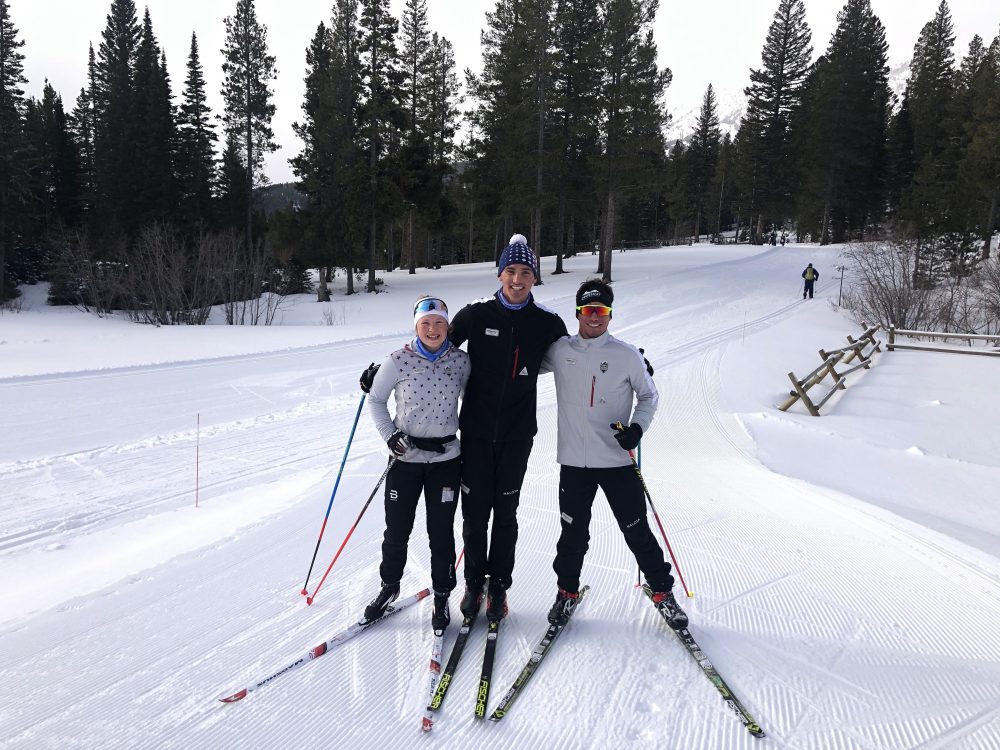
Moving forward, the elite program at Crosscut hopes to bring a few new adaptive athletes to Bozeman from outside the national team, supporting them as they move through the development pipeline. Michaud explained that the program aspires to rise alongside the US Para Nordic program.
“We’ll see the program growing at Crosscut in the same way that the development for the Paralympic team around the country has been happening. It will no longer just be a home training site when they’re in town during the winter, but we’ll start to see more development, more para athletes training with Crosscut throughout the year.”
Speaking to the broader vision of US Para Nordic, Carey expanded on Michaud’s statement, including enforcement of the message that other clubs can follow Crusscut’s lead in integrating para athletes into their existing programming.
“We are working to increase the development of our sport especially in the standing and visually impaired categories,” wrote Carey. “US Ski and Snowboard and USBA clubs and coaches are also our development pathways for para athletes and there are many clubs and teams around the country who have para athletes integrated into their programming. Crosscut created para specific criteria for their elite team and named para athletes to their team. In this and many other ways, they are a tangible representation of our vision of how development can work for para athletes. They are showing that it can be done, that they have the tools to do it, and that there are benefits to it for everyone.”
Rachel Perkins
Rachel is an endurance sport enthusiast based in the Roaring Fork Valley of Colorado. You can find her cruising around on skinny skis, running in the mountains with her pup, or chasing her toddler (born Oct. 2018). Instagram: @bachrunner4646

